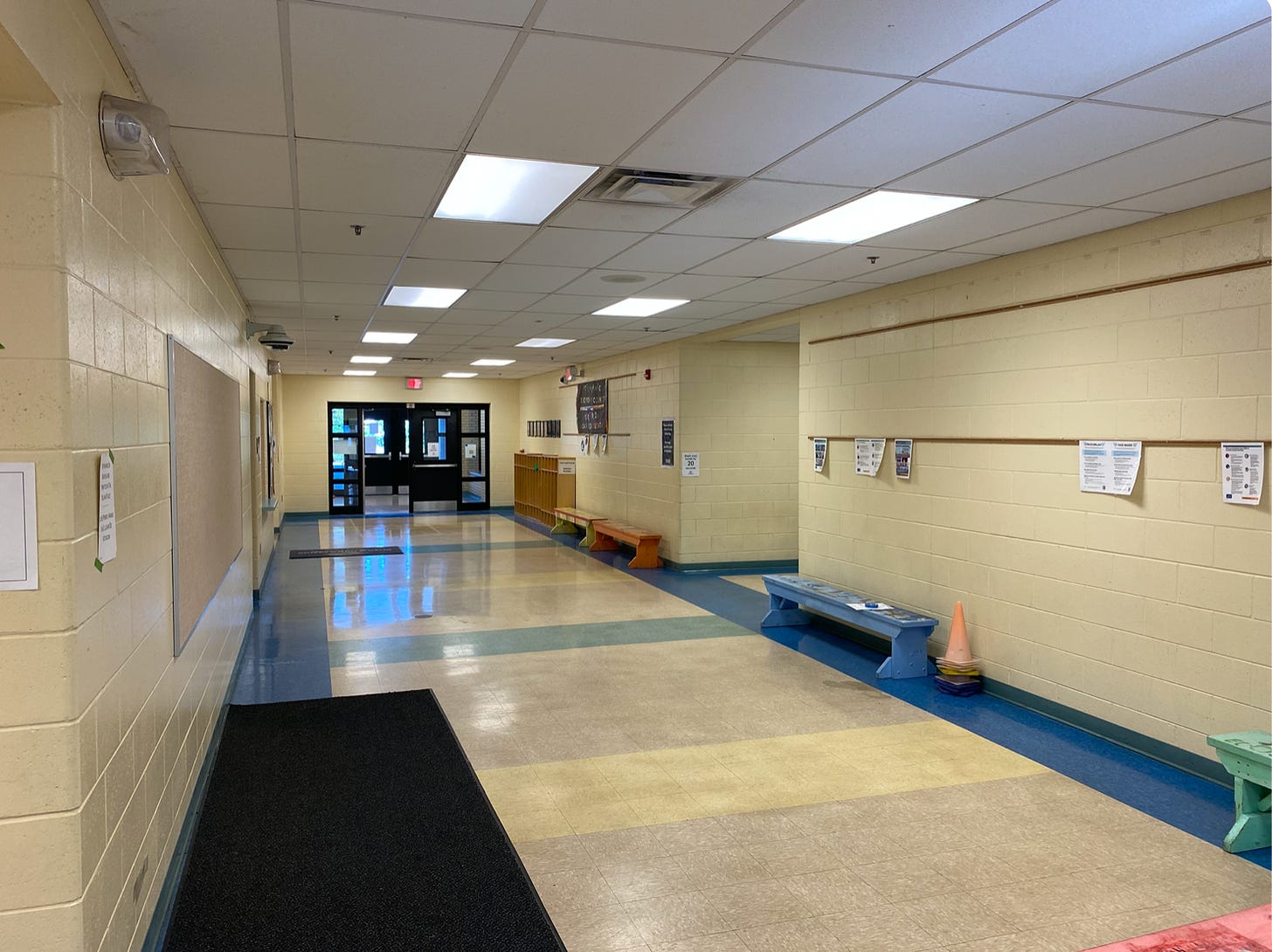
Note: This issue might not be your cup of tea, and that’s fine. I don’t mention race or whiteness much at all. I talk instead about the various dribs and drabs of half-thoughts and 60%-emotions that have occupied my mind this past week. I do so not because I have any presuppositions that my own mental distractions are the most important things in the world right now, but because, well, it was the most honest thing I could write. In the meantime, here’s a nice mutual aid fund in Montana and a lovely project in Milwaukee that could use donations.
My wife and I voted last week. In person. Super weird. It was one of those under-the-radar elections where the only contested race was for Register of Deeds, so there was no risk of not socially distancing. We were play-acting democracy, my wife and I, choosing between two candidates that we had Googled five seconds before stepping foot into our polling place. We were doing all this at our son’s elementary school, which meant that in addition to any feelings we were having about the current state of American democracy, we were also flooded with the antiseptic silence of a space that would typically be filled with the energy and debris of dozens of teachers preparing for a new school year. And you know what? It felt bad! I didn’t like it! I prefer my communities alive and vibrant rather than ghost town eerie.
I also know, from friends in other states, what lies on the other end of this year’s first-day-of-school. Parents and teachers alike are already exhausted. Schools that opened their doors to in-person instruction have paid for their hubris with mass outbreaks. Schools that stayed virtual can take pride in knowing they did the responsible thing, but pride only gets you so far when you don’t know how to do any of this.
I felt all that for a couple days and then we received a packet of virtual learning information from the school. They’re doing their best. They’re working tremendously hard. We’re grateful for it. We’ll do our best too.
Nothing feels right or normal right now, and yet we show up, we put one foot in front of the other.
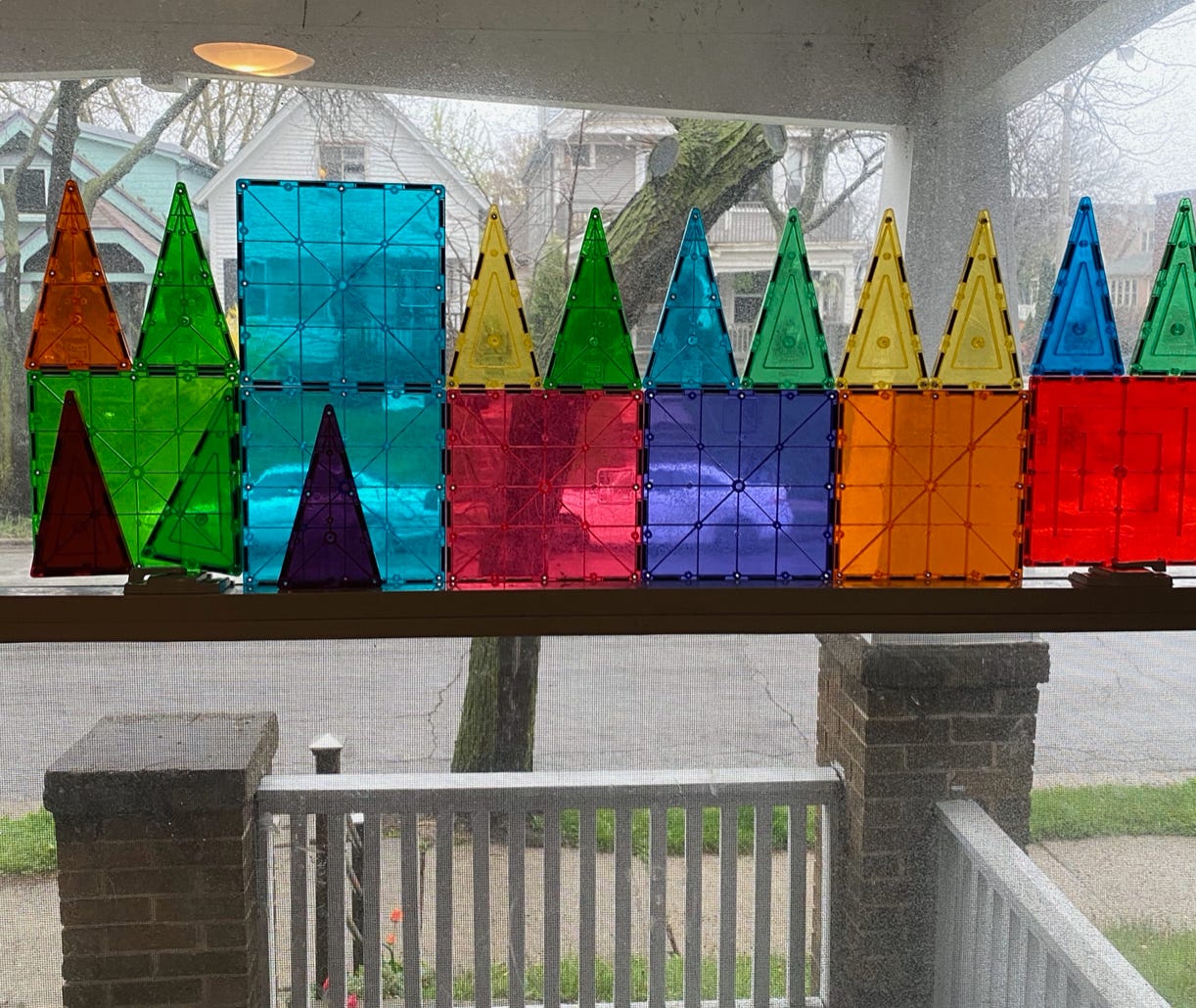
My parents moved this week. We’ve been incredibly lucky to have them live within walking distance for a half-dozen years, but we always knew that this wouldn’t be permanent. My parents are Montanans through and through. It is right and good that they are getting to go back to our home state, but I’m of course deeply sad in ways that are both selfish (I love my folks and have adored having them so close) and sympathetic (both my kids and my parents delighted in their role in each other’s lives, and the end of that proximity is a loss worth grieving).
I haven’t been inside my parents’ house since Covid started. I did all my “moving help” from their driveway. This meant that I dodged the bullet of having to take in the emptiness of spaces that I normally associate with five decades of family pictures and the joyful clutter of a deeply impressive Brio train set that my mom bought “for my dad.” I didn’t have to stare at a barren living room and curse generations of future owners for not knowing that this is where our kids used to chase each other with my mom’s wooden duck toy until they would collapse in a pile of giggles.
I drove by the house today. I reminded myself that the couple that bought it have a baby on the way. How amazing that they get to create something new in that space, how that emptiness will soon be filled beyond all imagining.
There is too much going on and far too many new, weird barriers for us to cling to sentiment in the way we are accustomed. There is grief in that, of course, but there is also possibility. Perhaps it helps us be less beholden to the notion that anything, even the spaces we cherish the most, are ours alone. Sometimes, just maybe, an empty room is an invitation. Another foot in front of the other. Do the best you can.

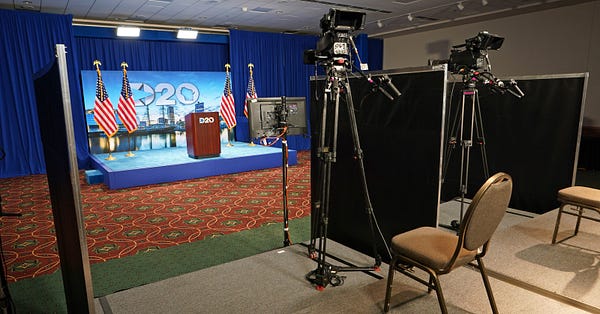
My parents left Milwaukee during a week when the world was supposed to arrive en masse. Officially, we are still the host city for the Democratic National Convention, but even bread and circuses are consigned to Zoom these days. The promise of thousands upon thousands of conventioneers eating and drinking and spending money and enjoying our temperate summer weather was the exact sort of get-rich-quick economic development and brand building scheme that cities like ours (read: oft-forgotten secondary metropolitan areas whose days as centers of industry have long past but who have shiny new arenas and axe-throwing bars) flock to like moths to a flame. And goodness, the economic losses are real. But I do wonder how much the perceived loss of our moment in the sun will actually matter.
Are we really still clinging to the myth that a successful convention or a new corporate headquarters or any big shot in the dark is enough to “save” an American city these days? If so, why? Why do we still dream that dream when the story of nearly every contemporary American municipality is either “places where thousands are struggling and it shows” or “places where thousands are struggling but it’s possible to ignore because enough people are getting rich that a shiny gloss can be painted over the cracks in the facade?”
The DNC didn’t come to Milwaukee this week. Instead, I delighted in the small experiments in beauty and caring that popped up in its place. A Black is Beautiful bike ride. A free community refrigerator project. Ideas that don’t promise deliverance but that are small and good and that teach people how to be with one another in new ways.
Sometimes the loss we experience when we stare at an empty room is new. Sometimes we try not to admit that same emptiness would have been there even if the room was full. And yet. Again. One foot in front…
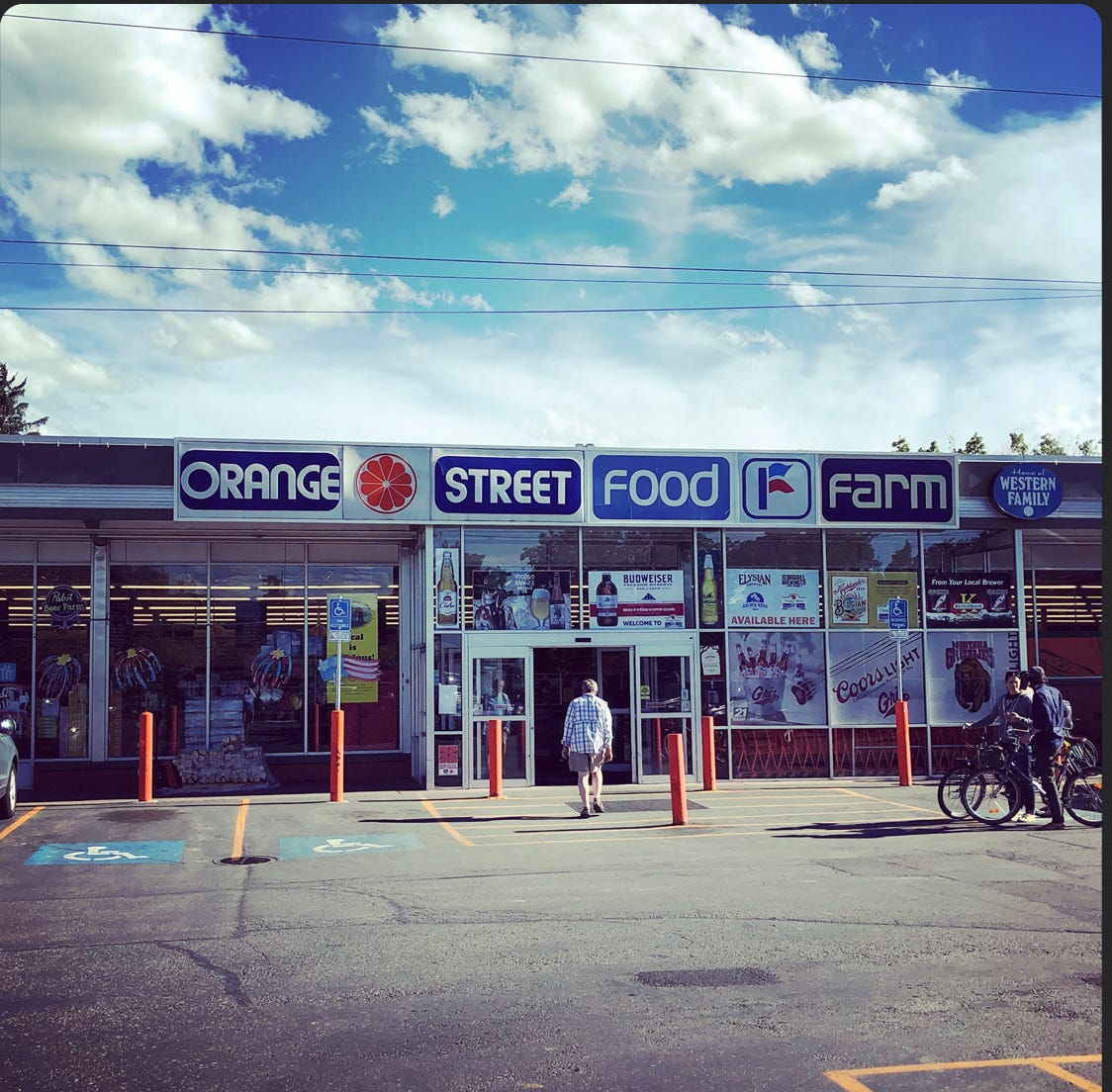
My parents are moving back to my hometown, though our family can’t afford a house in our old neighborhood any more. Unlike most of the country, the crunchy little mountain city that I elegize so frequently isn’t emptying out, at least not on a superficial level. Quite to the contrary, The Last Best Place is having a very peculiar moment in the sun. The housing market is through the roof, with average home prices climbing like so many Mount Sentinel switchbacks. That average was an already gaudy $300,000 a year ago but it’s closing in on $400,000 today and rising. If you are wealthy and there’s a pandemic afoot and you only have to care about yourself and your immediate family, you could do worse than decamp to Missoula, Montana. It’s a lovely town. The problem, of course, is that there were already people living in Missoula, Montana and those people still work the same (disproportionally) low paid jobs and our town still only has the same single major employer (a state University in enrollment free-fall) and it’s all quite scary and a real mess.
And so my parents—- who taught me how to be beautiful, loving members of a community, about how to do thankless, necessary things that help your neighbors without asking for credit— are about to arrive back in my hometown at the moment that I’m most scared about its ability to actually be a community and not a second-home playground.
Sometimes the emptiness that stings the most doesn’t look, at first glance, like emptiness. It looks like a housing boom. It looks like a downtown filled with tourists. It looks like a simulacra of a perfect community being built on top of the rubble of a more beautiful but messier attempt at the real thing.
And yet, in Missoula, as is true everywhere, there are people imagining something different. They are organizing to reduce the police budget and divert that money to affordable housing support instead. I hear that efforts there can feel new and halting and the odds, when the other side has big money behind it, can seem daunting. In spite of this, though, good people back in my hometown, including old friends, are putting one foot in front of the other.
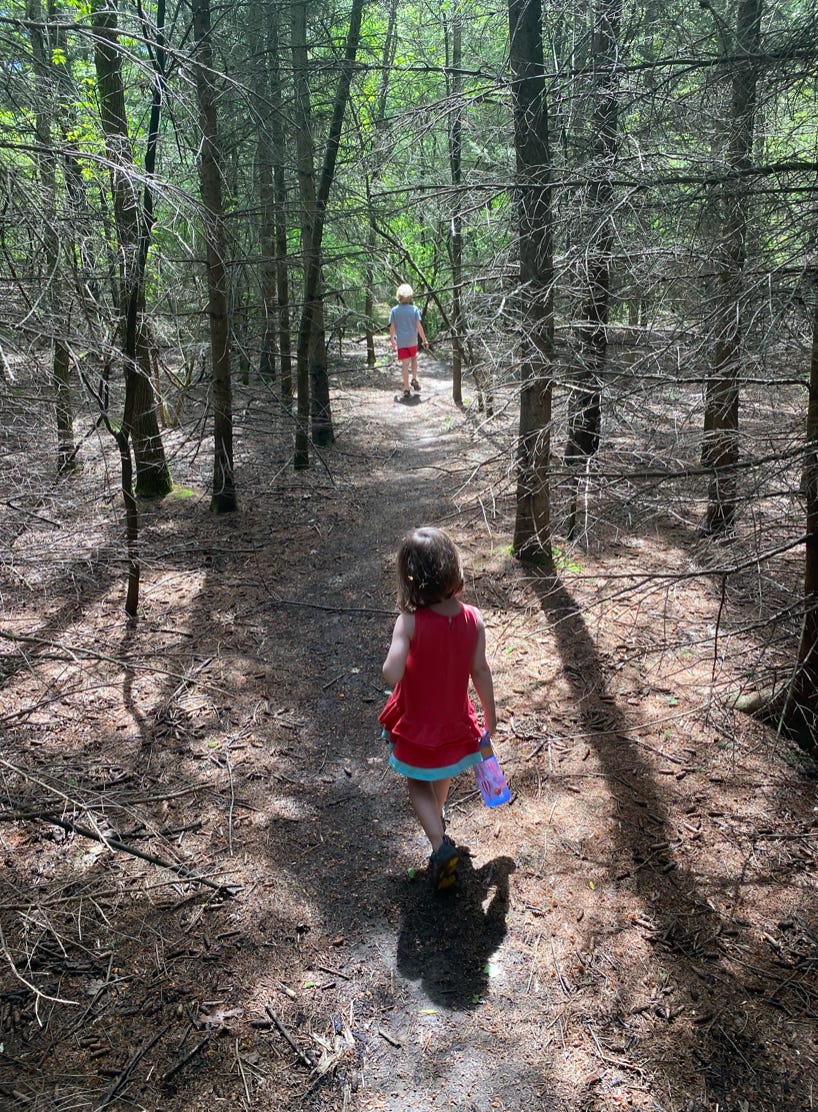
There is more on my mind, of course, but that’s not unique to me. All of our minds are swirling in so many different directions these days. I’ve been thinking about the push-pull of this newsletter, about the benefits and drawbacks of writing to other white people about racism when my own personal history is littered with crimes of commission and omission. I’ve been thinking about people I’ve harmed and how to repair harm- about when doing so is about the other person and when it’s solely about cleansing my own conscience. I’ve been thinking about how to write vulnerably without making my own emotions the point. I’ve been thinking about how for the next three months I’m going to be inundated with passionate messages about both the importance of and extreme limitations of voting and I’m already tired of both lectures. I’ve been thinking about how California is on fire and how California is always on fire and how it’s always prisoners who have to jump out of planes into those fires. I’ve been thinking about the Post Office, our country’s purest and best single institution. I’ve been thinking about how I will, by the end of this, preach about the importance of community again but then doubt whether any of us know how to build it. I’ve been thinking about how the thing we call mutual aid is often just rebranded charity but that it’s still worth doing. I’ve been thinking about how the thing we call justice is really just rebranded punishment and how that should make us pause in our tracks. I’ve been thinking about how what we often name as liberation is really just a desire to win an argument and that should make us realize that we’re all hurting so badly.
I’ve been thinking.
I’ve been thinking.
I’ve been thinking.
I’ve been saying
one foot in front of the other.
Over and over again, I’ve been saying it. And believe it or not, that’s what I’m trying with this mind dump of a writing experiment. I’m trying to figure out what you actually do after you shout to the rooftops that your goal is to build community. I am wondering out loud if one part of that puzzle is to let both friends and strangers know that you’re up for hearing and processing all the things that are swirling in their minds. I am then wondering, in turn, if you can help speed the plow by offering a bit of your own swirl as well.
There is no great trauma in my swirl right now. There is, in fact, immense amount of privilege. I am sharing not because I’m in need of disproportional comfort at a moment when the world is hurting so profoundly, but because this swirl is part of what I bring to the table these days. You too, I assume, are swirling. You too, I assume are trying your best. You too, I assume, are making mistakes and perhaps causing harm. We need each other, you and I, even if we don’t know how or why. We need each other to swirl a little less. We need each other to cause less harm. We need each other to feel a little less emptiness. We need each other because often one foot in front of the other actually means one foot towards one another.




Thanks for setting an all the feels example GB. Those empty school images are haunting me... Empty schools, empty towns, empty homes in evacuated fire areas. What might seem scattered to you feels very centered to this reader.